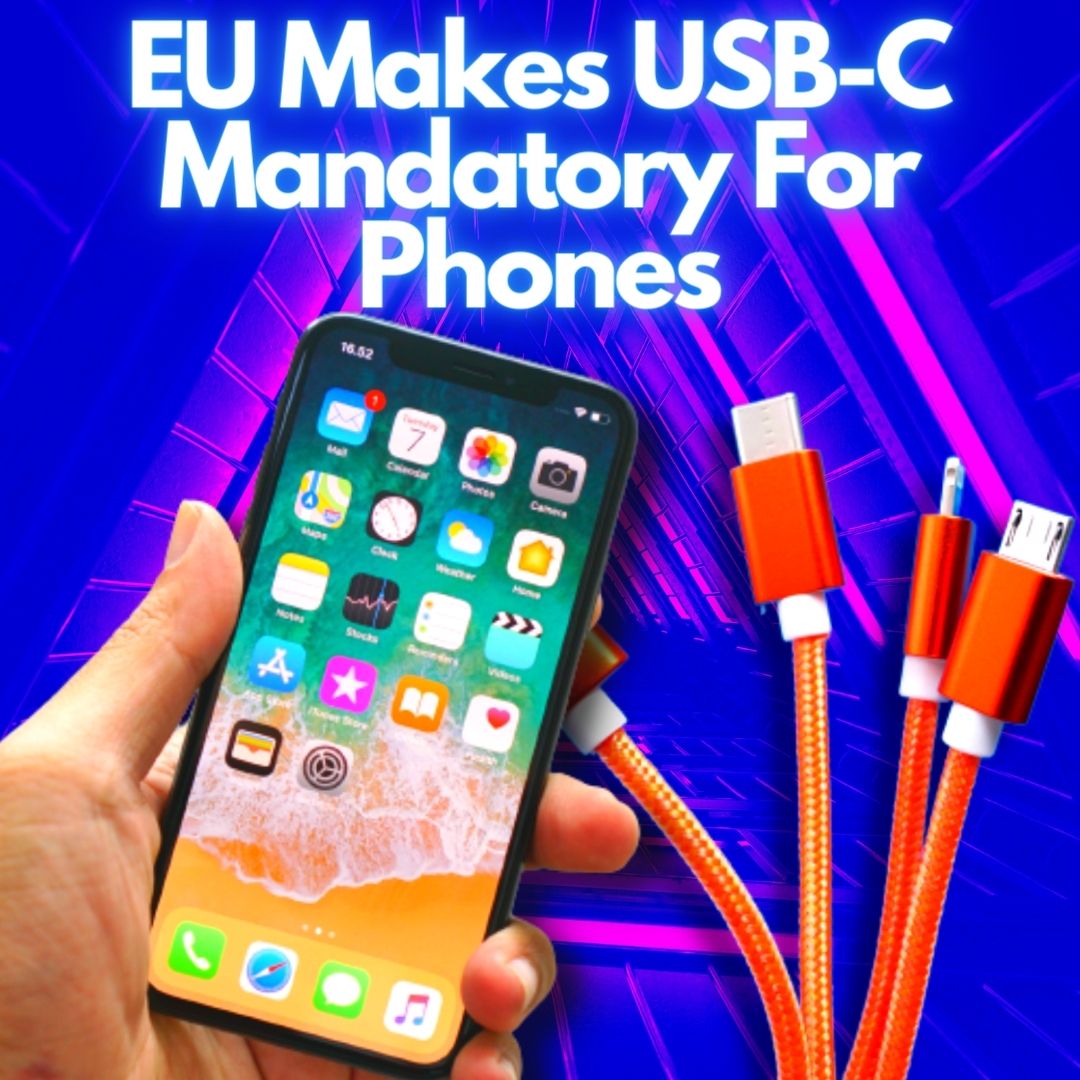New EU Deal Will Force Apple iPhones To Use USB-C Charger By 2024- All You Need To Know
Writer: Snehadri Sarkar
While he is a massive sports fanatic, his interest also lies in mainstream news and nitpicking trending and less talked about everyday issues.
Others/World, 8 Jun 2022 5:58 AM GMT
Editor : Ankita Singh |
A literature lover who likes delving deeper into a wide range of societal issues and expresses her opinions about the same. Keeps looking for best-read recommendations while enjoying her coffee and tea.
Creatives : Snehadri Sarkar
While he is a massive sports fanatic, his interest also lies in mainstream news and nitpicking trending and less talked about everyday issues.
Apple in the past had warned the proposal would create roadblocks to innovation and trigger a mountain of electronic waste. Contrary to this, a top Apple analyst had also claimed that iPhones, by next year, would come with the all-popular USB-C port.
In what comes as a significant setback for Apple, the company must change the connector on iPhones sold in Europe by 2024 amid EU countries and lawmakers decided on June 8 to a single charging port for all tablets, mobile phones and cameras in a world first. This political intervention, which the European Commission stated would make the life of people much easier for consumers and save significant money, came after companies failed to find a common solution.
New USB-C Chargers For Devices!
It has been more than a decade since Brussels started pushing for a single mobile charging port, driven by complaints from Android and iPhone users about changing to different chargers for their devices.
iPhones use a Lightning cable for charging, while Android-based devices use USB-C connectors instead.
The company, which did not immediately respond to a comment request, had warned that the proposal would massively hurt innovation and create a massive electronics waste. In spite of those warnings, its shares were up 0.9 per cent in morning trade in New York, reported Financial Express.
Analysts have claimed that this move could turn out to be a sales driver for Apple in 2024, causing more Europeans to purchase the latest gadgets instead of those without USB-C.
What This Means For Apple & iPhones?
News outlet Bloomberg had reported last month that Apple is currently engineering an iPhone with a USB-C charging port that could debut next year.
When Apple launches a new iPhone, the older generation phones usually get discounted after a while, resulting in millions of customers opting for the cheaper variants.
Suppose the EU bans the sale of older models. In that instance, it risks upsetting numerous consumers and the government would be forcing consumers to shell out more, said Jitesh Ubrani, research manager at research firm IDC.
Around 50 per cent of the chargers sold with mobile phones in 2018 had a USB micro-B connector, while 21 per cent had a Lightning connector and almost 29 per cent had a USB-C connector, a 2019 Commission study claimed.
"By autumn 2024, USB Type-C will become the common charging port for all mobile phones, tablets and cameras in the EU," the European Parliament said in its official release.
Thierry Breton, EU industry chief, claimed that the deal would save approximately 250 million euros ($267 million) for consumers in due course.
"It will also allow new technologies, such as wireless charging, to emerge and to mature without letting innovation become a source of market fragmentation and consumer inconvenience," he stated.
'Charging' Future Of Laptops, Tablets & Other Tech Devices
Just like cell phones, laptops will also have to comply with the legislation within the next 40 months of this new law coming into force. The EU executive will hold the ability in future to harmonise wireless charging systems as well. So that the deal also covers e-readers, earbuds and other tech devices, it will also have a major impact on companies like Huawei, Samsung, and other device makers, analysts predicted.
 All section
All section















